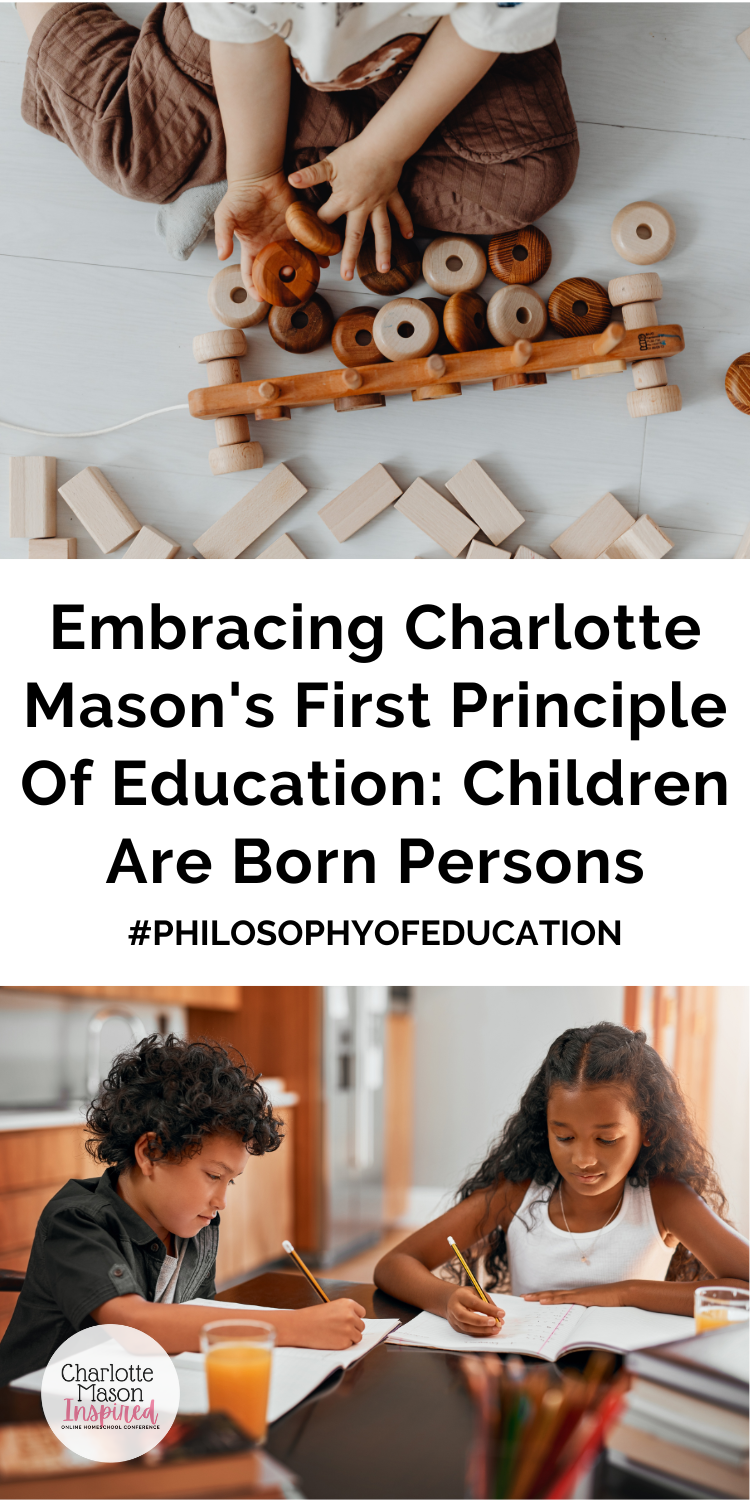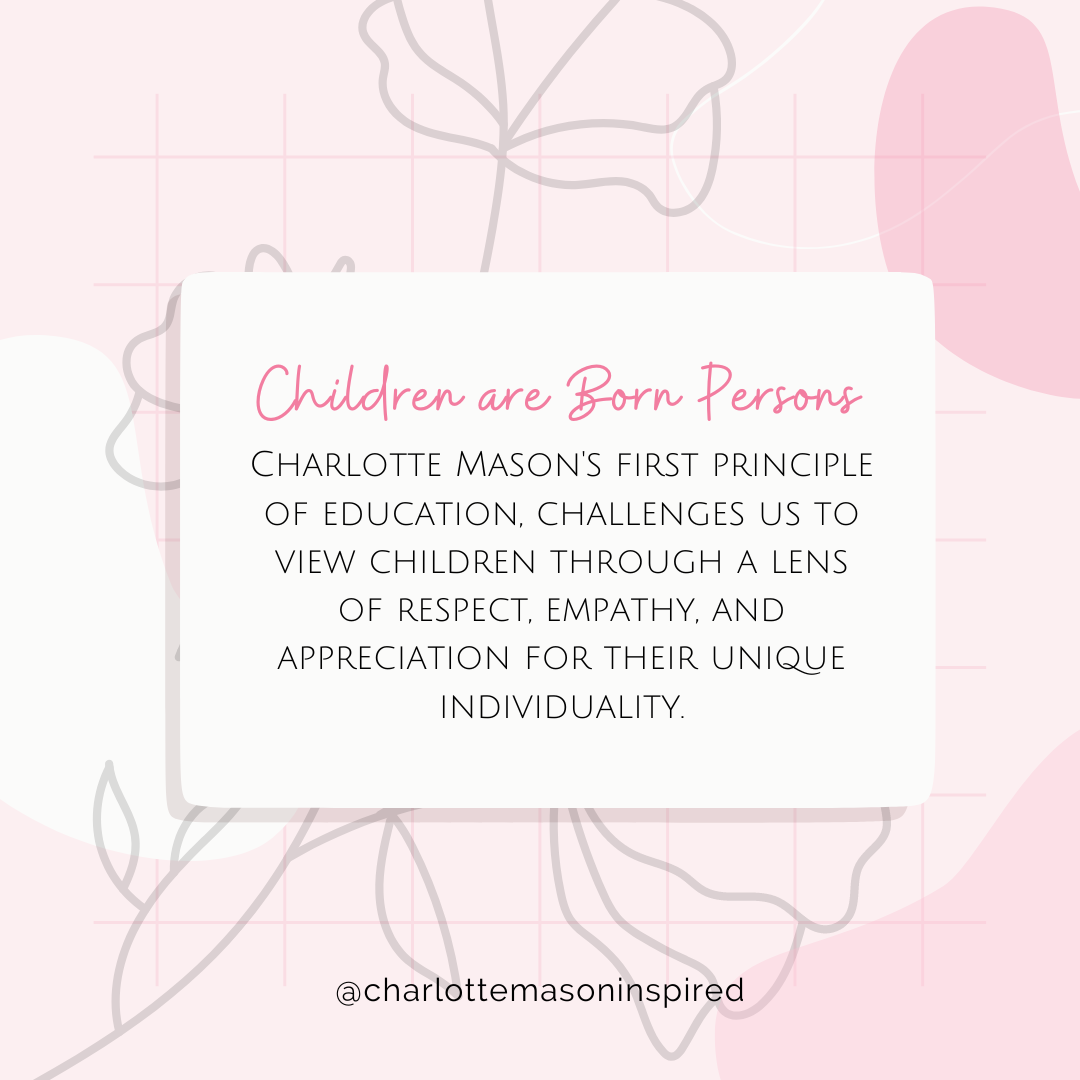In the realm of education, one prominent figure stands out for her revolutionary ideas and holistic approach—Charlotte Mason. Her philosophy of education is centered around 20 foundational principles, each of which encompasses a unique aspect of child development. Among these principles, the first one holds significant importance: “Children are born persons.”
This fundamental principle serves as a guiding light, reminding us to acknowledge the inherent dignity, worth, and individuality of every child. In this post, we delve into the profound implications of this principle and explore how embracing it can revolutionize the way we educate our children.
Recognizing Inherent Worth
Charlotte Mason’s emphasis on recognizing children as unique individuals reminds us that they possess inherent worth and dignity from birth. Regardless of age, background, or abilities, every child is a person deserving of respect, understanding, and empathy.
By embracing this principle, educators and parents alike shift their mindset from viewing children as ‘empty vessels waiting to be filled’ to recognizing their innate potential and capabilities. This perspective encourages us to foster an environment that nurtures the whole child—intellectually, emotionally, morally, and spiritually.

Respecting Individuality
No two children are the same. Each child has a unique set of talents, interests, and aptitudes. The principle of “Children are born persons” encourages us to celebrate and respect this individuality. It prompts us to embrace a student-centered approach to education that acknowledges the diverse strengths and learning styles of children.
By doing so, we can tailor educational experiences that cater to their specific needs, enabling them to reach their full God-given potential.
Cultivating a Love for Learning
When we recognize children as persons, we ignite their natural curiosity and desire to learn. Charlotte Mason believed in nourishing a child’s mind through a rich and diverse curriculum, providing them with a feast of knowledge.
By exposing children to living books, nature, art, music, and real-life experiences, we enable them to form meaningful connections with the world around them. This holistic approach to education fosters a genuine love for learning that transcends mere academics.

Encouraging Responsibility and Self-Governance
Children have an innate sense of responsibility and an ability to govern themselves. By recognizing this, we can empower them to take ownership of their education. Charlotte Mason advocated for giving children age-appropriate responsibilities and allowing them to make decisions, fostering a sense of autonomy and self-discipline.
This approach cultivates essential life skills, such as time management, critical thinking, and problem-solving, while nurturing a sense of accountability.
Nurturing Relationships
Another vital aspect of Charlotte Mason’s first principle is the recognition that children thrive in nurturing relationships. By building strong connections with educators, parents, and peers, children develop socially and emotionally. Engaging in meaningful conversations, fostering a sense of community, and providing an atmosphere of love and support contribute to a child’s holistic growth.
This principle reminds us that education is not limited to the confines of a classroom; it encompasses the relationships and connections we establish.

Charlotte Mason’s first principle of education, “Children are born persons,” challenges us to view children through a lens of respect, empathy, and appreciation for their unique individuality.
By embracing this principle, we can create a transformative educational environment that fosters a love for learning, encourages personal responsibility, and nurtures strong relationships.
Let us remember that children are not vessels to be filled, but individuals with their own thoughts, dreams, and potential. By honoring their personhood, we can unlock the true power of education and guide them towards a fulfilling and purposeful life.
